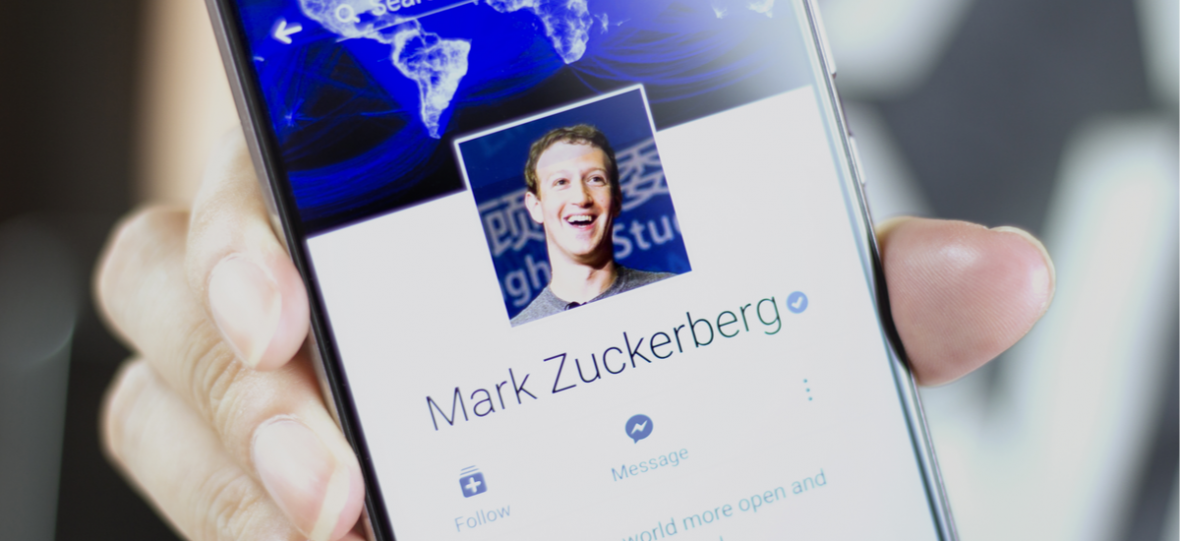Facebook is too big and too powerful to be driven by one person. That s what his co-founder claims

The scandal of the scandal does not prevent Marek Zuckerberg from accumulating more and more power. Even its founders see the threat.
Chris Hughes knows Facebook from the inside out. He is one of his founding fathers. Although, as he admits himself, he has not worked in the company for a decade, he feels responsible for the medium that he helped create. He is furious looking at what has grown out of him. His long article in the New York Times is the proclamation of his father who raised the monster and wants to help him knock him down.
Too big and too powerful to be driven by one person.
Since the public has learned about Cambridge Ananlytica, the credibility of the largest social media in the world has dropped almost to nothing. Since then, the scandal has been chasing the scandal. Hughes ruthlessly scores all the last slip-ups from the sluggish response of the site to the action of Russian trolls after not faking news. Since the last year, each long period without bad news about Facebook seems only the silence before the storm. Even the biggest supporters of the website admit that it has disadvantages and it is serious. It's too big. It's too powerful. Especially that it is in fact directed by one man.
Mark Zuckerberg is known for the fact that he likes to exercise close and personal control over what is happening on his platforms. Hughes confirms that it was the discord on his ongoing supervision that caused the two founders of Instagrama to leave the platform last year to seek happiness (and millions) elsewhere. He adds, however, that the board in which Zuckerberg holds 60 percent. votes, does not have a control function in relation to the company's CEO. He is at most his advisory body, which has a very limited influence on the decisions made by his boss. And that raises problems.
Hughes in his story humanizes Mark Zuckerberg, trying to portray him as a fueled by the immemorial fire of an efficient entrepreneur. He emphasizes, however, that no human, even Mark, should have such a large impact on the lives of so many people.
The CEO of Facebook manages not only his flagship platform, which is the largest social medium of the world, but also one of the most popular communicators in the world and a wildly popular Instagram . Life in the network goes largely on tracks designated by him, and their arbitrarily shaped shape can be anxiety.
Facebook threatens democracy.
According to Hughes, the time has come for politicians to stop admiring the amazing development of Facebook and have started to look at it critically. Last year's hearings of Marek Zuckerberg in the Senate revealed the unpreparedness of politicians and their lack of knowledge, not the unethical activities of the company. No serious accusations have been made. The interrogation turned out to be a hood.
Hughes, referring to the history of the demolition of monopolies in the United States, calls for the separation of Facebook. Its dominant position is just as detrimental to the entire market as indisputable.
According to Hughes' calculations, Facebook controls 80%. income from social media in the world, but money is only part of its power. By creating algorithms that determine what we see on the screens of smartphones or computers, Mark Zuckerberg exercises not only power over a row of numbers in his books, but also the government of souls.
Facebook is finishing the competition
The founder of Facebook speaks clearly - the company is a monopoly and as such abuses its power, aggressively and actively combating competition.
There are several strategies for this. He buys it, like WhatsAppa or Instagram. He copies her solutions, as he does with Snapchat. It hampers her life as much as she can and minimizes her actions as in the case of Vine. This is not a good strategy for market development. This is the shortest way to give Facebook full domination for as long as possible. Monopoly costs are borne by users. It is the lack of an alternative, lack of new solutions, slowing down innovation.
The Facebook business model is also a problem. Free of seemingly makes us all your product. We pay for the services with data and the time we devote to watching the ads. Specialists in their field work to make the company's applications as engaging as possible, and our attention to them as long as possible.
The average user, of course, has a free choice but does not fight an equal fight. On the other side are well-paid specialists who will do a lot to make it dependent on their product.
Politicians should break down Facebook.
Hughes urges American politicians to break down Facebook's dominance with antitrust laws. The Federal Trade Commission should withdraw the acquisition by Instagrama and WhatsApp and make sure that the company will not be able to buy similar applications within the next few years. This is the exact opposite of what Mark Zuckerberg wants to do , integrating three companies more firmly. Hughes suggests that this move may be aimed at anticipating FTC decisions and obstructing its implementation.
The founder of Facebook also recommends setting up a new agency that would oversee the activities of technology companies. Its most important task would be to protect the privacy of users and to define what can and can not be written on the internet. And although he realizes that it sounds like censorship, such rules still exist and will exist. The question remains, who do we prefer to determine - politicians or Mark Zuckerberg?
Facebook is too big and too powerful to be driven by one person. That's what his co-founder claims
Comments
Post a Comment